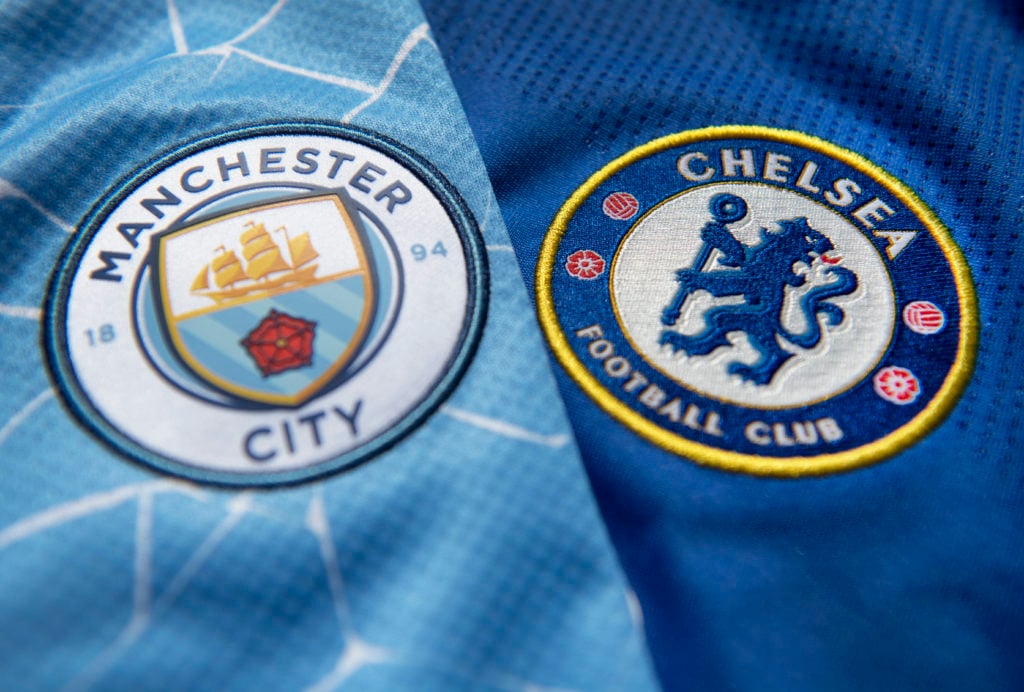Amid PSR victory, Chelsea and Man City have requested another Premier League rule change

Today at 01:15 PM
Man City have claimed victory against the Premier League’s APT rules in news that will be celebrated by Chelsea – and the pair are also lobbying together for another exception to the league’s rules.
In what was widely perceived as a direct counter attack to the Premier League’s decision to charge City with 115 counts of financial misconduct, City have challenged the APT rules in the arbitration courts.
Rules governing APTs (associated party transactions) were introduced in the wake of the Saudi Public Investment Fund’s takeover of Newcastle United in October 2021.
In essence, the rules were ostensibly introduced to prevent clubs from signing artificially inflated commercial deals with companies with links to their owners in order to short-circuit PSR.
Today, Man City have claimed victory in the APT case, with an independent tribunal having deemed that elements of the rules are unlawful.
Conversely, the Premier League have stated that they “welcome the tribunal’s findings” after it “upheld the need for the APT system as a whole and rejected the majority of Manchester City's challenges.”
Either way, the case has divided Premier League clubs, with Chelsea known not to have given evidence in the case – unlike Liverpool, Arsenal and others – but who have broadly sided with City in the fight.
The case is particularly relevant to Chelsea, whose sale of two on-site hotels at Stamford Bridge for a profit of £76m was an associated party transaction which is crucial to their hopes of PSR compliance.
And in more news related to the two clubs’ financial positions, there appears to have been another update from Premier League HQ.
- READ MORE: Joe Cole incredibly impressed by 'top-drawer' Chelsea target who is 'getting better and better'
Chelsea and Man City apply for FIFA-related exemption
Man City are among the most profitable clubs in the world at present, but Chelsea are at the other end of the spectrum and are desperate to generate revenue to comply with PSR.
Crucial to their strategy to avoid a breach is the 2025 Club World Cup, which both clubs will compete in under FIFA’s revamp of the competition.
Usually a stripped back affair, both City and Chelsea had to win just two matches when they triumphed in the competition in 2023 and 2021 respectively.
But the 2025 edition will see 32 teams compete in a World Cup-style tournament in the USA, with FIFA promising massive prize money – although the continued absence of a TV deal threatens that pledge.
The tournament will take place in July, giving both teams just a few weeks to recuperate ahead of the start of the 2025-25 season.
City boss Pep Guardiola has now seemingly revealed that both City and Chelsea applied to have their opening two games of the campaign to be postponed.
As quoted by City Xtra, the Spaniard said: “After the [2025 summer] holidays, the Premier League didn't allow us to postpone, with Chelsea I think or all the teams that went to the World Cup, the first two games [of the 2025/26 season] to come back for recovery… THANK YOU SO MUCH…”
Significantly, the Premier League are believed to be opposed to the new Club World Cup, with CEO Richard Masters having stressed anxieties around player welfare and workload.
Have City really ‘won’ the APT case?
In reality, these cases are never as simple as a binary win-loss outcome.
The element of the APT rules that stipulates that deals must be agreed at fair market value will almost certainly remain unchanged; although the burden of proof as to ‘fair market value’ has shifted.
The main victory that City appear to be claiming is that soft loans – which are interest-free loans from an owner to their club – should no longer be excluded from the APT rules.
That could be an issue for the likes of Arsenal – and indeed Chelsea – who have large soft loans, but it will not be transformative in terms of their PSR as it will likely only be the interest payments on the loans that are factored into the equation.
It is embarrassing for the Premier League in any case and will further undermine faith in its ability to self-regulate, just as the government contemplates whether or not to beef up the imminent independent regulator for English football.
